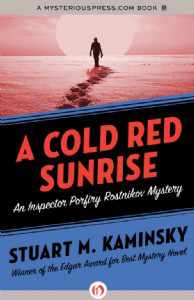Only Superhuman by Christopher L. Bennett
 Friday, October 26, 2012 at 9:49PM
Friday, October 26, 2012 at 9:49PM 
Published by Tor Books on October 16, 2012
Superheroes endure in the imagination because they speak to our desire to empower the powerless, to be inspired by the iconic. Superheroes in science fiction have gained new life by the trendy notion of transhumanism, the use of technology to enhance human abilities. The current breed of supermen aren't born on Krypton; they're genetically or mechanically engineered. While paying tribute to comic book superheroes of the twentieth century (particularly a certain webspinner who likes to talk about the responsibility that comes with power), Christopher Bennett's Only Superhuman transforms the costumed superhero into a plausible (if unlikely) inhabitant of the future.
The novel opens in 2017. The hero upon whom the story focuses is a Troubleshooter named Emerald Blair, a/k/a the Green Blaze. Bennett gives her a melodramatic origin story (a tradition for superheroes) and sets up a background in which most transhumans hail from the asteroid belt, genetic engineering having met with disfavor on Earth. The Troubleshooters are a union of uniformed vigilantes who strive for justice, except when they don't. The Troubleshooters are only one of a number of competing transhuman groups. The most significant of the others are the Vanguardians and the Neogaians (human/animal hybrids who oppose restrictions on human enhancement that deny humanity "its right to evolve"). The Vanguard is most prominently represented in the novel by Eliot Thorne and his daughter Psyche, a woman with genetically enhanced empathy and an engineered ability to manipulate others. A helpful appendix identifies the different groups that have taken up residence in the various asteroid belts.
While the story has its share of battles between costumed characters, the plot is driven by political treachery. Emerald must decide whether the leaders of the Troubleshooters are using improper means to achieve the wrong ends and eventually comes to question her long-standing assumptions about the group's righteousness. Should she ally herself instead with the Vanguardians, the organization her father abandoned and where her relatives still dwell? Emerald improbably blames her father for her mother's death, and what she learns with the Vanguard requires her to confront that anger.
As you might guess from this synopsis, much of the story is too obvious to succeed as good storytelling. The reader knows that Emerald will learn Valuable Lessons and will resolve her feelings about her father. At the same time, the heart of the story -- the betrayals and political intrigue -- is reasonably strong. Only Superhuman also showcases an interesting debate about the ethics of genetic enhancement, the possibility of saving and improving lives versus the use of babies as guinea pigs. More of that and fewer obvious life lessons would have made this a better novel.
The story's pace is uneven, in part because too much of the writing is expository and in part because it is so filled with relationships and betrayals that a reader might need to diagram them to make sense of it. Too much anguished conversation interrupts the story's flow. All the superhero sex becomes a bit tedious (the Green Blaze is easily aroused and Psyche, who uses sex as a weapon, has a full arsenal). Emerald's histrionics are tiresome. The novel keeps going long after it should end as the various characters engage in extended talk therapy with each other. In short, some good ideas and likable characters kept me reading, but a tighter, less predictable story would have earned a stronger recommendation.
RECOMMENDED WITH RESERVATIONS


